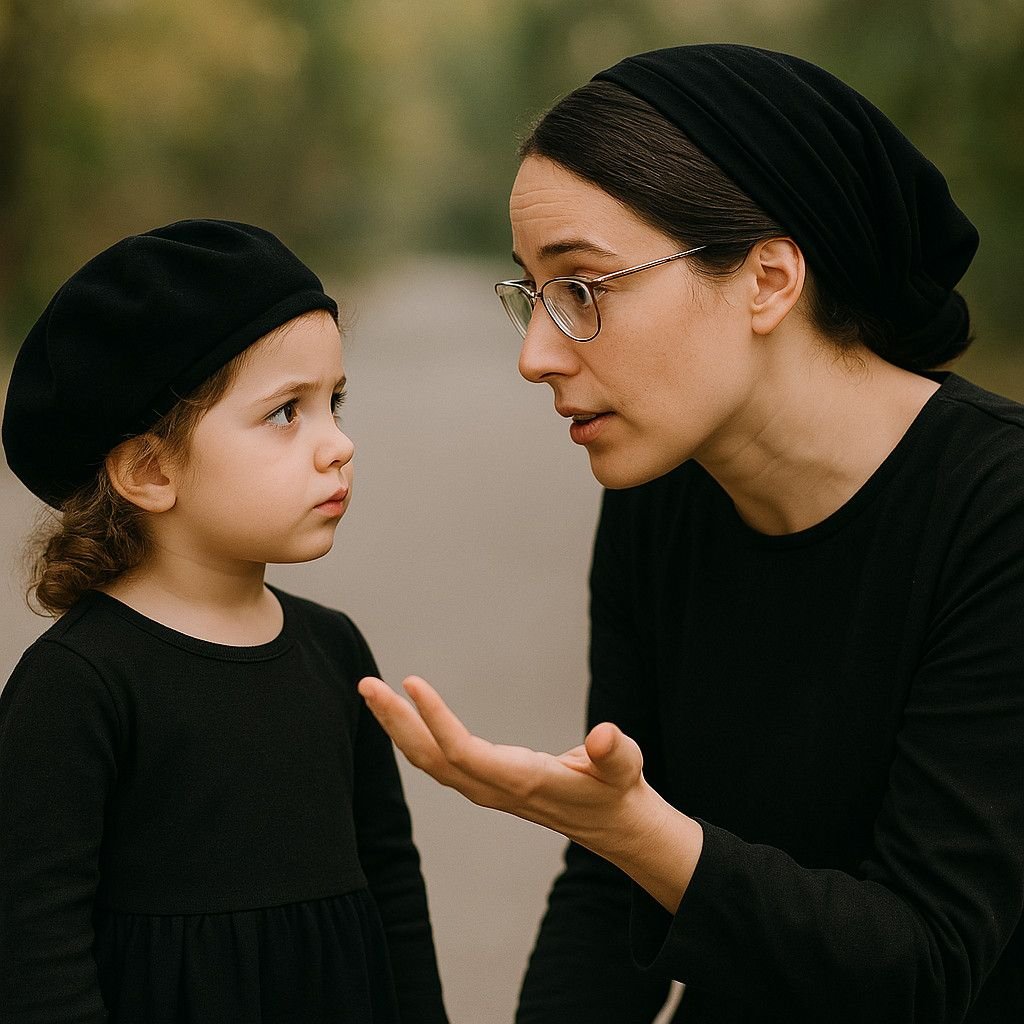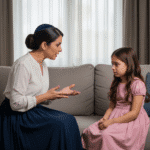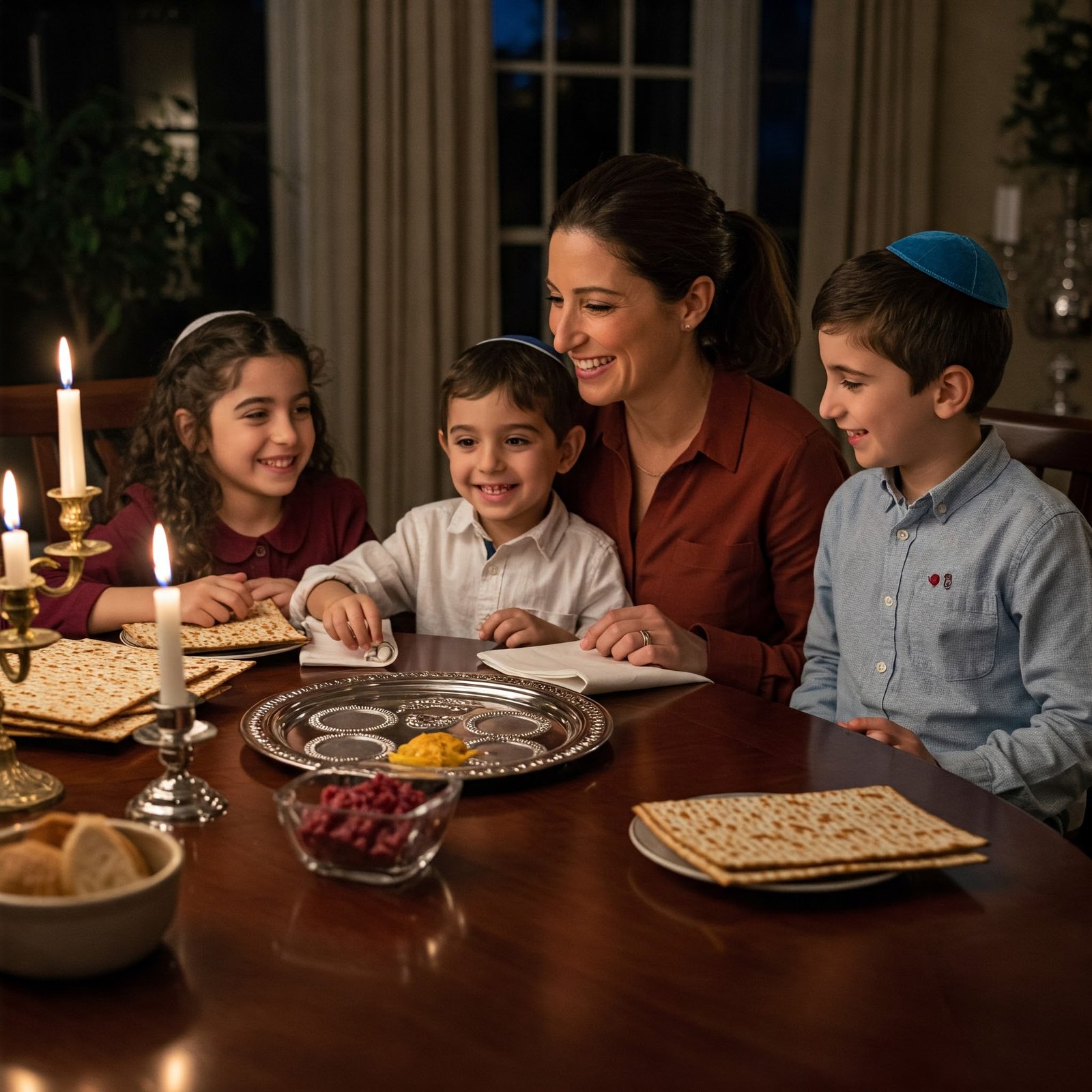Telling your children that you and your spouse are getting divorced is one of the most challenging conversations you will ever have as a parent. How you deliver this news will shape their understanding, emotions, and ability to process the changes ahead. This guide will walk you through how to have a structured family meeting to share this information with love, clarity, and reassurance. Throughout the guide, we provide expert insights, sample scripts, and strategies for handling different reactions based on your child’s temperament and needs.
Children process divorce very differently than adults. Understanding their fears and confusion is the first step to offering them safety and stability. Your child’s world is about to be turned upside down. Meal time, vacations, trips and holidays will never be the same. Your divorce might be the best thing for your family, but your child will not be able to understand that. From a child’s perspective a divorce is no different than an amputation. And again, there are times when an amputation is medically necessary, it’s painful and requires a lot adjustment and rehabilitation. Most parents would go to the end of the earth to protect their children. Yet, those same parents unknowingly (or refuse to know) share directly or indirectly information regarding their divorce case with their children. Parents should agree on an ironclad rule that the children are not included or informed or involved with any details of negotiations surrounding the divorce. This includes talking to your toen, lawyer, family or friends about the divorce . Your children should not know or hear the words Beit Din, court, judge, custody, visitation, social worker, alimony or child support.
Your goal is to walk your children through this divorce peacefully. You don’t want your children to see life through the lens of your divorce. Make sure they know and they will always have two parents, even if they are no longer living together.
Preparing for the Conversation
Before sitting down with your children, take the time to prepare emotionally and practically:
- Choose a time when all children can be present – preferably Motzei Shabbat or after school when they won’t have to rush off.
- Decide on the key points you will share – keep it simple, honest, and age-appropriate.
- Anticipate questions and reactions – be ready to address their concerns calmly.
- Maintain a united front – even if tensions exist between you and your spouse, you must both present a message of support and stability.
- Discuss logistics beforehand – make sure you and your co-parent agree on basic custody arrangements before speaking with the children.
Expert Insight: “Children need certainty and security. The way parents communicate about divorce will shape how children cope with the transition.” – Dr. Joanne Pedro-Carroll, Child Psychologist.
Finding Your Breath Before You Speak: The Moment Itself
So, you’ve done the prep work. You’ve hopefully found a sliver of calm within yourself, agreed on the core message with your co-parent, and picked a time when the world outside can pause for a moment. Now comes the actual conversation. Walking into that room can feel like walking towards a precipice. Remember to breathe. Your children will sense your anxiety, yes, but they will also sense your intention. Aim for a calm presence, not a cold one. It’s about showing them, “This is hard, I feel it too, but I am here for you, solid and steady.”
When you gather them, try to create a feeling of connection, maybe just by sitting close on the sofa. You don’t need a grand opening statement. Sometimes starting simply with, “We have something really important we need to share with you all,” is enough. Use that “we” language you practiced; it signals unity even if things feel fractured behind the scenes. Then, deliver the news you agreed upon – directly, kindly, without confusing jargon. Something like, “Mom and Dad/Abba and Imma have made a very difficult decision that we need to live in different homes now. We are getting a divorce.”
The crucial next breath? That’s for reassurance. Pour it on thick. Immediately emphasize it’s not their fault. Say it multiple times, different ways. Stress that this is about adult issues, grown-up unhappiness, that has absolutely zero to do with them or anything they did or didn’t do. And wrap it all in love – reiterate, profoundly, that your love for them is unchanging, absolute, and that you will both always be their parents, no matter what.
Then comes the silence. Or maybe, the storm. Let it happen. Don’t rush to fill the quiet or immediately try to fix the tears or anger. Just hold the space. Your ability to simply sit with their raw emotion, without needing to shut it down, is profoundly validating. Nod. Say, “I hear you,” or “I see this hurts.” Connect with their feeling before you try to address the practicalities. This quiet presence, this willingness to witness their pain without flinching, builds more trust than any perfectly crafted answer ever could. Remember, validation first, answers second.
Answering Tough Questions
Q: “Why are you getting divorced?” A: “This is a decision we made as adults because the marriage is not working. But it has nothing to do with you, and we both love you very much.”
Q: “Will I have to move?” A: “We will make sure you have a safe, comfortable home with each of us. We will keep you updated on any changes. If any big changes happen, we will always talk to you first.”
Q: “Can you get back together?” A: “We know you would love that, but this decision is final. Even though we won’t be married, we will always work together as your parents.”
Q: “You always tell us to get along and forgive. You’re the adults—why can’t you do it?” A: “That’s a really good question. Forgiving and getting along are very important, and we are working on that. But being married is different from being friends or family. Sometimes, the best way to be good parents is to live in separate homes where we can both be happy.”
Q: “Who is going to do shidduchim with a family like this?” A: “Shidduchim come from Hashem, and every person has their own unique path. Many wonderful people come from divorced families and go on to build happy, loving homes. What truly matters is how we treat each other, the values we uphold, and the strength we build as a family moving forward. There are many families with divorced parents where the children have found excellent matches and built strong, loving marriages.”
Q: “I don’t want to live with Abba/Imma. I only want to live with Imma/Abba.” A: “We understand that this is a big change, and it’s okay to have strong feelings about it. We will make sure that you have a schedule that helps you feel safe and comfortable. Both of us love you very much, and we want to make sure you continue to have a strong relationship with each of us.”
Example Response for a Child Who Insists on Living Only with One Parent: “I hear that right now you feel like you only want to live with one of us. Sometimes, when things change, we have big emotions. But we know that both of us are important in your life. ”- this should be said by the parent who the children claim they want to live with.
Other Potential Questions:
- “Who will take care of me when I’m sick?” – “Both of us will always take care of you. If you get sick while at Abba’s house, he will take care of you. If you get sick at Imma’s house, she will take care of you. And we will always make sure you have everything you need.”
- “Will you still come to my school events?” – “Yes, both of us will still be involved in your life. Sometimes we will come together, and sometimes separately, but we will always support you.”
- “What happens if I miss the other parent?” – “It’s okay to miss us when you’re at the other home. You can always call or send a message, and we can make sure you have time to check in.”
- “Will we still celebrate Yomim Tovim together?” – “That depends on what works best for our family. Some Yomim Tovim might be together, and some might be separate, but we will always make sure you feel happy and included in the celebrations.” If you do not plan on spending the Yomim Tovim together- tell the children “We are committed to making the Yomim Tovim enjoyable as possible.
- “What if I don’t like going back and forth between two houses?” – “That’s understandable, and we will do our best to make things comfortable for you. We will have special things for you in both homes and create a plan that makes moving back and forth easier.”
Expert Insight: “Answer questions honestly, but in a way that does not burden the child with adult problems.” – Dr. William Doherty, Family Therapist.

Life After the Initial Talk: Weathering the Changes Together
Getting through that first conversation feels like scaling a mountain. But reaching the summit just reveals a whole new landscape to navigate. The days and weeks following the initial talk are where the real work of adjustment begins, both for your children and for you. This isn’t about suddenly everything being okay; it’s about building a new kind of normal, slowly and patiently.
Don’t assume one conversation is enough. Kids process big news in layers, often revisiting it in their minds long after the initial shock wears off. New questions might bubble up days later, or feelings might intensify. Keep the door open. Let them know, implicitly and explicitly, that it’s always okay to talk about it, to ask more, to feel sad or angry again. Sometimes a simple, “Just checking in – how are things feeling today?” can create that space. Let their pace guide these follow-up chats.
Consistency becomes a lifeboat in choppy waters. The world feels unpredictable, so create predictability wherever you can. Sticking to routines – bedtimes, homework schedules, meal times – provides comfort. And crucially, try your absolute hardest to establish and maintain a consistent schedule for transitions between homes. Knowing what to expect, week to week, helps children feel more secure and less anxious. Aiming for similar core rules and expectations in both households also helps immensely, reducing confusion and the potential for kids to feel caught in loyalty binds or exploit differences.
This leads to perhaps the most vital ongoing task: shielding your kids from conflict. That united front you hopefully started with? It needs to become your co-parenting mantra. Whatever frustrations, disagreements, or hurt feelings exist between you and your ex-partner must be handled away from the children. No exceptions. No snide remarks, no tense phone calls in their hearing, no asking them to relay messages. Witnessing parental conflict is incredibly stressful and damaging for children. Communicate directly with your co-parent about logistics, schedules, and child-related decisions, but keep it business-like and private. Use email, specific co-parenting apps, or even mediation if direct communication consistently devolves into arguments. Your children’s well-being depends on this buffer.
Recognize too, that this is a time of grief. Your children are mourning the loss of the family they knew, the future they imagined. Allow space for that sadness. Don’t try to cheer them up constantly or minimize their feelings. Sometimes they just need to be sad, and they need to know that’s okay. And extend that same grace to yourself – you’re grieving too. Finding healthy outlets for your own emotions is vital. Consider your support system – lean on trusted friends or family who are genuinely supportive (not those who fuel conflict). And don’t hesitate to seek professional help if your child seems stuck in their grief or anxiety, exhibiting prolonged changes in behavior or mood. A therapist or school counselor can be an invaluable ally. Taking care of your own mental health is not selfish; it’s essential for being the parent your children need right now.
Final Thoughts
Divorce is a difficult transition, but children can emerge resilient when given love, stability, and clear communication. By approaching the conversation with care and preparing for different reactions, you provide them with the foundation they need to navigate this change. The above advice is general and may not be applicable to your family. Before having this life altering conversation with your children, it is best to consult a professional who knows your family dynamic.
Shoshana Goldstein-Nissenbaum, Toenet Rabbanit and Mediator, has a wealth of knowledge on how to navigate the difficulties and transitions of divorce. With years of experience guiding families through complex and emotional challenges, she offers more than just advocacy or mediation—she provides a compassionate, strategic approach to help parents and children build resilience and stability during this transition. Her work extends beyond legal and halachic expertise—she helps families create lasting, peaceful co-parenting structures that support children’s emotional well-being.
She helps parents create sustainable co-parenting plans, develop healthy communication, and build a strong foundation for their children’s emotional security. If you are navigating divorce and need guidance, support, or mediation, reach out for expert advice and practical solutions tailored to your family’s needs.
Peace begins with a plan. Schedule a consultation today to get the structure you and your children need.
“The way parents handle divorce will shape how their children view relationships and trust in the future.” – Dr. Judith Wallerstein, Psychologist.










